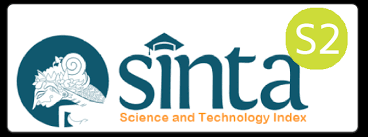Inculcating Tsunami Awareness in a Mathematics Lesson: Improving Students’ Collaborative Problem Solving via Lesson Study
Abstract
The past two cycles of PISA have reflected the demands of the skills and competencies that many countries desire their future generations to possess. Among these competencies, students’ financial literacy, problem solving, and communication skills have emerged to be as important as their reading and quantitative literacy (OECD, 2013). Problem-solving, along with other 21st century skills can be inculcated in the students by using the problem-solving
pedagogy. However, teachers who are not used to teaching mathematics via problem solving need to experience the pedagogy themselves and this can be best achieved by implementing Lesson Study. A Lesson Study research study was conducted to look at collaborative problem solving in the teaching of the topic on “rate” to year 5 students. Results showed that students benefited from their lesson in terms of increased knowledge of the problem context and the
ability to apply knowledge of rates in finding the best solution that the problem posed. Consequently, Lesson Study was found to help enhance teachers’ pedagogical content knowledge. It helped them produce effective lesson plans that incorporated student-centred authentic lessons that also integrated values, use of technology and students’ creativity in problem solving.
Keywords
Full Text:
PDFReferences
Burghes, D., & Robinson, D. (2009). Lesson Study: Enhancing Mathematics Teaching and Learning. London: CfBT Education Trust.
Cazden, C Cazden, C. B. & Beck, S. W. (2003). Classroom discourse. In A. C. Graesser, M. A. Gernsbacher & S. R. Goldman (Eds.), Handbook of discourse processes (pp. 165-197). Mahwah, NJ: Lawrence Erlbaum Associates
Cheah U. H., & Lim C. S. (2010). Disseminating and Popularising Lesson Study in Malaysia and Southeast Asia. Paper delivered at the APEID Hiroshima Seminar “Current Status and Issues on Lesson Study in Asia and the Pacific Region.
Chen, K. S. (2013, December 8). Poor show in PISA ranking. Retrieved from The Star Online: http://www.thestar.com.my/News/Education/2013/12/08/Poor-show-in-Pisarankings/
Fernandez, C. & Chokshi, S. (October 2002). A practical guide to translating Lesson Study for a U.S. setting. Phi Delta Kappan, 84(2), 128‐134.
Jackson, B. (2013, October 3). Why Other Countries do Better in Math. Retrieved from The Daily Riff: http://www.thedailyriff.com/articles/why-other-countries-do-better-in-math-520.php
Liptak, L. (2002). It's a matter of time: Scheduling Lesson Study at Paterson, NJ School 2. Patterson, New Jersey: RBS
Ministry of Education Malaysia (MOE) (2013). Malaysia Education Blueprint Annual Report, Ministry of Education Malaysia. Putrajaya: Author.
OECD (2013). PISA 2012 Assessment and Analytical Framework: Mathematics, Reading, Science, Problem Solving and Financial Literacy. Bangkok: OECD Publishing. http://dx.doi.org/10.1787/9789264190511-en
Programme for International Student Assessment (PISA) (2013). PISA 2015 Draft collaborative problem solving framework. Retrieved 20th July, 2014 from http://www.oecd.org/pisa/pisaproducts/Draft%20PISA%202015%20Collaborative%20Problem%20Solving%20Framework%20.pdf
Shimizu, S. (2006). Professional development through Lesson Study: A Japanese case. Paper presented at the APEC International Symposium on Innovation and Good Practices for Teaching and Learning Mathematics through Lesson Study, Khon Kaen, Thailand.
Stigler, J., & Hiebert, J. (1999). The Teaching Gap: Best Ideas from the World's Teachers for Improving Education in the Classroom. New York: Free Press.
Suhaili, H. A., & Khalid, M. (2011). Mathematics Teachers Perception of Lesson Study as a Continuous Professional Development Programme. Journal of Science and Mathematics Education in Southeast Asia, 34, 67-89.
Tang, S. (2014, April 14). Malaysian Students Nowhere Near Top of the Class. Retrieved from Malaysian Business Insider: http://www.businessinsider.my/malaysias-studentsnowhere-near-top-class/#.VBpvlHlxnIU
DOI: https://doi.org/10.46517/seamej.v6i1.37
Refbacks
- There are currently no refbacks.
Indexed by:
Southeast Asian Mathematics Education Journal
SEAMEO Regional Centre for QITEP in Mathematics
Jl. Kaliurang Km 6, Sambisari, Condongcatur, Depok, Sleman
Yogyakarta, Indonesia
Telp. +62 274 889955
Email: seamej@qitepinmath.org
p-ISSN: 2089-4716 | e-ISSN: 2721-8546
Southeast Asian Mathematics Education Journal is licensed under a Creative Commons Attribution 4.0 International License
View My Stats
Supported by:



